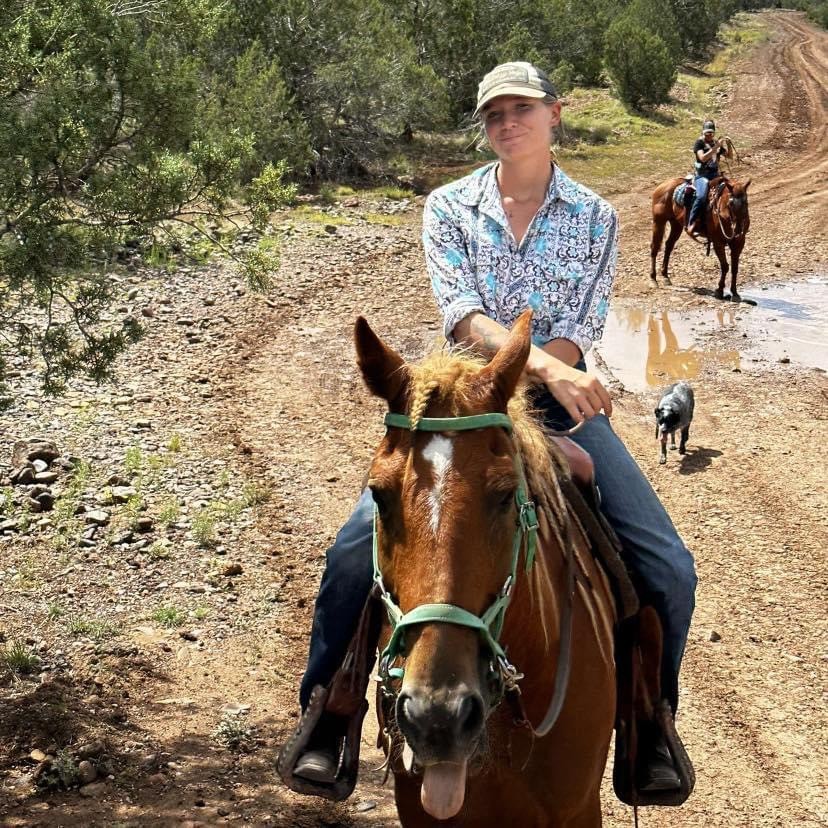We’re excited to introduce you to the always interesting and insightful Mackenzie Wilde. We hope you’ll enjoy our conversation with Mackenzie below.
Mackenzie , appreciate you joining us today. One of the toughest things about entrepreneurship is that there is almost always unexpected problems that come up – problems that you often can’t read about in advance, can’t prepare for, etc. Have you had such and experience and if so, can you tell us the story of one of those unexpected problems you’ve encountered?
One of the most unexpected problems I’ve faced in my business is that people have a tendency to fear change. The equine industry focuses a lot on control. It is extremely common for equestrians to not put the horse’s welfare first, and every day you see people riding horses that are too young, beating a horse into submission, neglecting basic care, and more. The issue is – everyone looks the other direction instead of actually advocating for the horse. Being an equine professional who uses science-based methods and puts the horse before the sport often comes with a lot of backlash. People argue that if we’ve been doing it one way for generations, why change now? I’ve been told I’m “too kind” which is meant to be an insult, but quite honestly I see it as a compliment. It’s disheartening to see that the equine industry thinks treating horses with kindness is the enemy. The other factor I’ve noticed is that the professionals who truly care about the horse rarely have as much success as the ones who don’t. This is because we are willing to take months of blood, sweat, and tears to do right by the horse. We don’t rush things for the sake of finances or fame or a man-made deadline. Some of these big name professionals are known for having miraculous transformations overnight… but people don’t see what happens behind the scenes. They don’t see the horse entering a state of learned helplessness. They don’t notice the stress signals or the neurological damage of pushing a horse beyond their limits. When you make the decision to always do right by the horse, you literally sacrifice everything. Your friends, your coaches, your colleagues, your reputation, and more simply because people struggle to admit they are wrong and that there are better ways of doing things. It’s truly a situation where you either ignore the facts to stand with the crowd or stand alone knowing you are doing right by the animal.
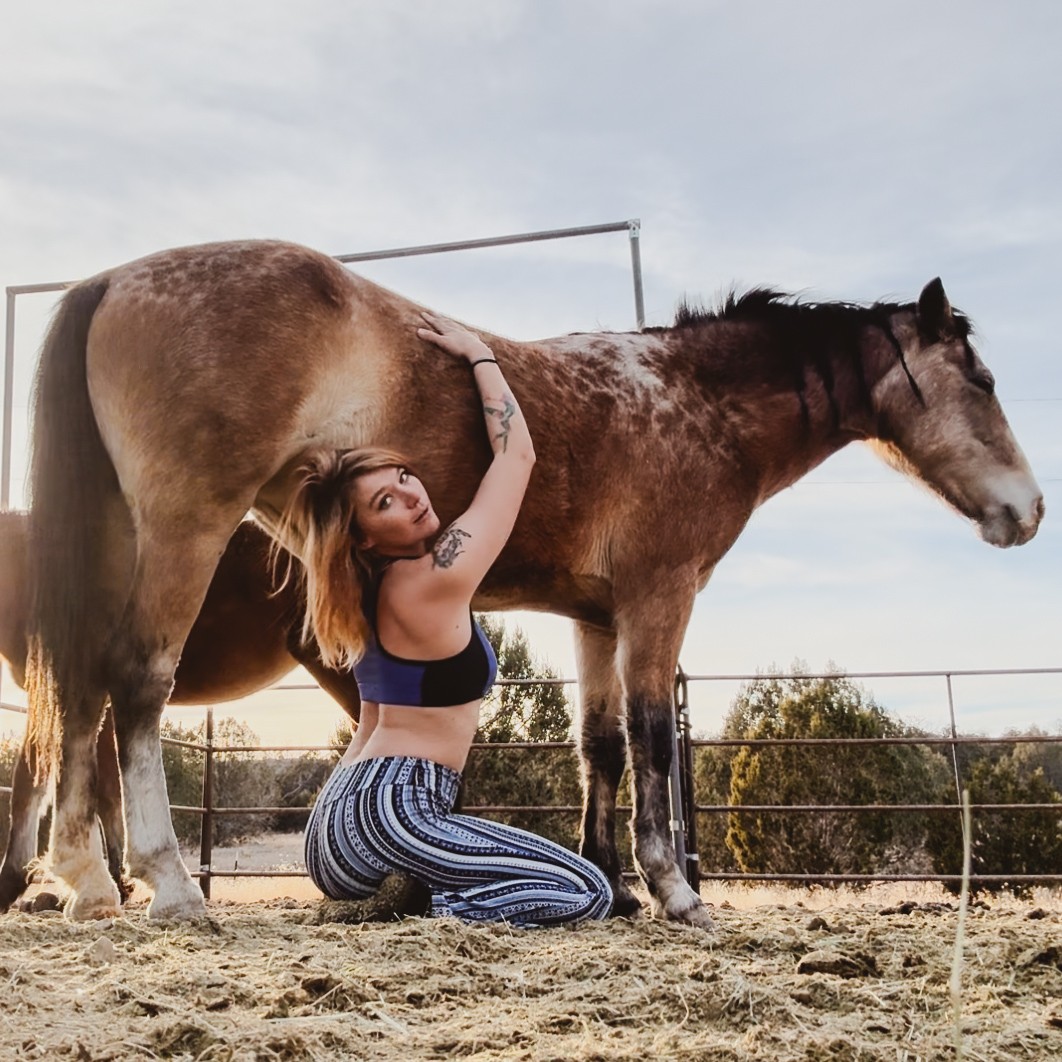
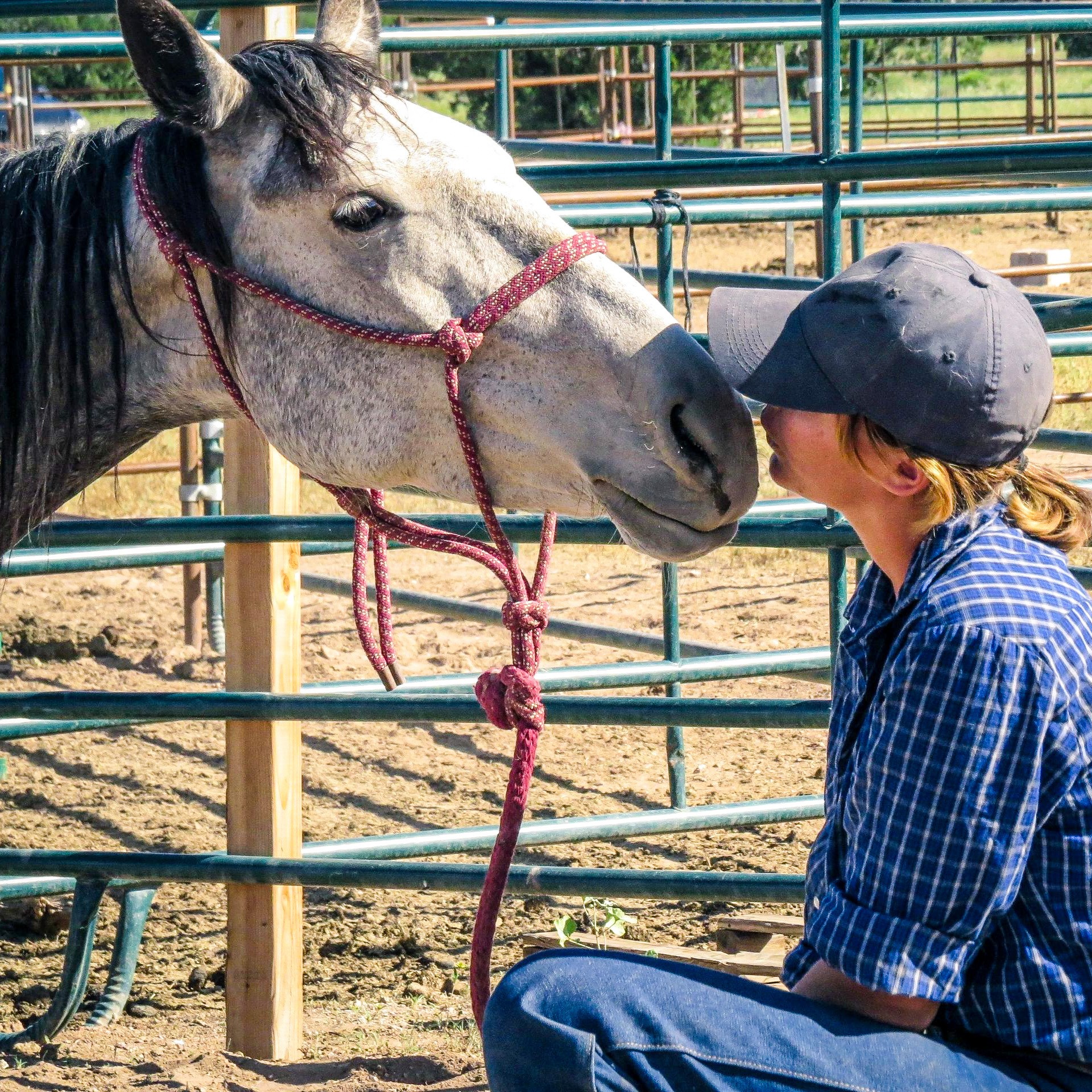
Great, appreciate you sharing that with us. Before we ask you to share more of your insights, can you take a moment to introduce yourself and how you got to where you are today to our readers.
My name is Mackenzie Wilde and I am an equine professional who specializes in working with traumatized, aggressive horses. I have been around horses the entirety of my life. Growing up in the English world only to switch to Western a little later on, I used traditional methods daily. Smacking a horse with my crop or spurring them till it left marks was what I had been taught to do since I was a child. But deep down inside, I hated it. I came from a very broken home and I struggled to understand how you can love something so much… yet cause it so much pain. People trusted me to ride their rank colts and work with some pretty gnarly horses because I was good at “showing the horse who was boss.” But I didn’t want to be their boss. Landing myself on the streets at age fifteen, I came across a mustang who had successfully claimed the life of one individual and landed countless people in the hospital. At the time, I was struggling with self harm and addiction. In my mind, if this aggressive horse killed me, then it wouldn’t be suicide, right? Months and months passed and this mare, Delilah, held death over my face day after day. It took six months to halter break her, a year and a half to saddle break her, and more injuries than I’d care to admit. I actually wrote a memoir about the journey with this horse, titled Beneath the Surface. Because in the midst of training this highly aggressive horse, my life changed. I found a reason for living, I was able to build an entire career off of dangerous horses, all while exploring kinder ways of doing things. I was able to show people through this horse and many others that you don’t have to beat a horse to get it to respond. That no matter how aggressive the animal may be, violence is not the answer. The goal of my business is to educate people on science-based training while applying kinder, gentler methods with aggressive horses. I hand-select horses throughout the year that need a lot of work, document the entire training process, and then look for the perfect match. I have written several books on equine-related matters ranging from why traditional methods are no longer valid to the study of equine neurology and trauma. In the fall, I hope to have launched an online academy where people from around the globe can come to learn more about ethical horsemanship practices. The more horses that I can help overcome their trauma and turn into functional members of society can show people that there are better ways of doing things. My hope is that one day, we will start seeing more kindness within the industry, and that the horse’s welfare will be at the top of our list of priorities.
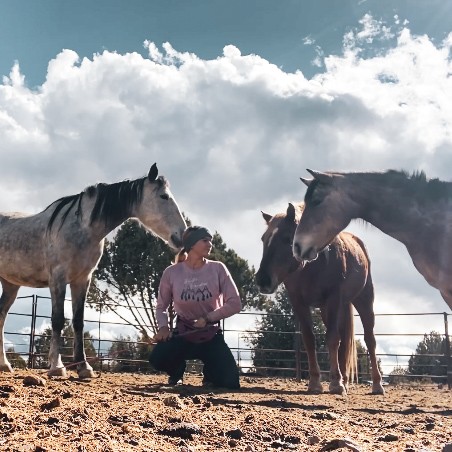
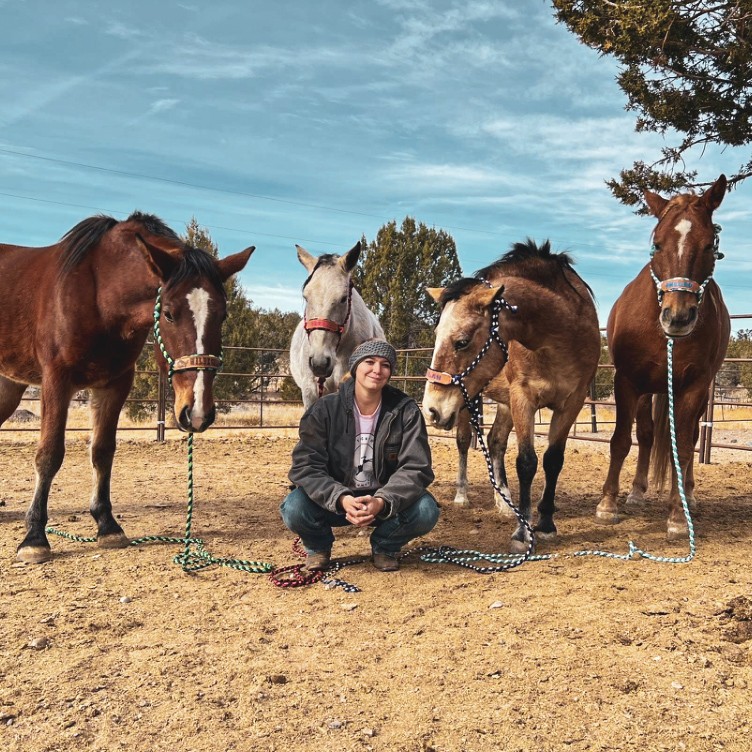
Do you have any stories of times when you almost missed payroll or any other near death experiences for your business?
There was one year that was incredibly difficult for business and it actually led to me shutting my doors temporarily. I had a client horse whose owner refused to get it the necessary care. They refused to take care of its hooves, its teeth, and despite my many pleas for them to do something, they refused. So I started contributing my own finances to try and help this horse who was in pretty rough shape. The owners grew very frustrated, picked the horse up, and then proceeded to drag my name through the mud. Telling everyone I was a horse abuser, calling animal control, and more. Due to my screenshots, picture and video evidence, as well as statements from other clients and professionals who had aided me with this horse, it was clear that I was not in the wrong. But the publicity that arose with these claims made the business struggle for a bit as new clients were skeptical. Shortly after this incident occurred, I ended up getting into a really bad equine accident. A client horse grabbed me by the head over the fence, pulled me into their stall and proceeded to flail me around like a ragdoll. I was in a coma for three weeks, in a wheelchair for several months, and developed epilepsy as the result of a traumatic brain injury. These two incidents led me to shutting my doors for a little over a year while I regrouped. When I reopened, I decided I wasn’t going to take privately-owned horses anymore. Instead I was going to focus on only the lost causes, taking them into my care and working with them for as long as necessary before rehoming them. This allows me to educate people, document training, and continue helping horses in need.
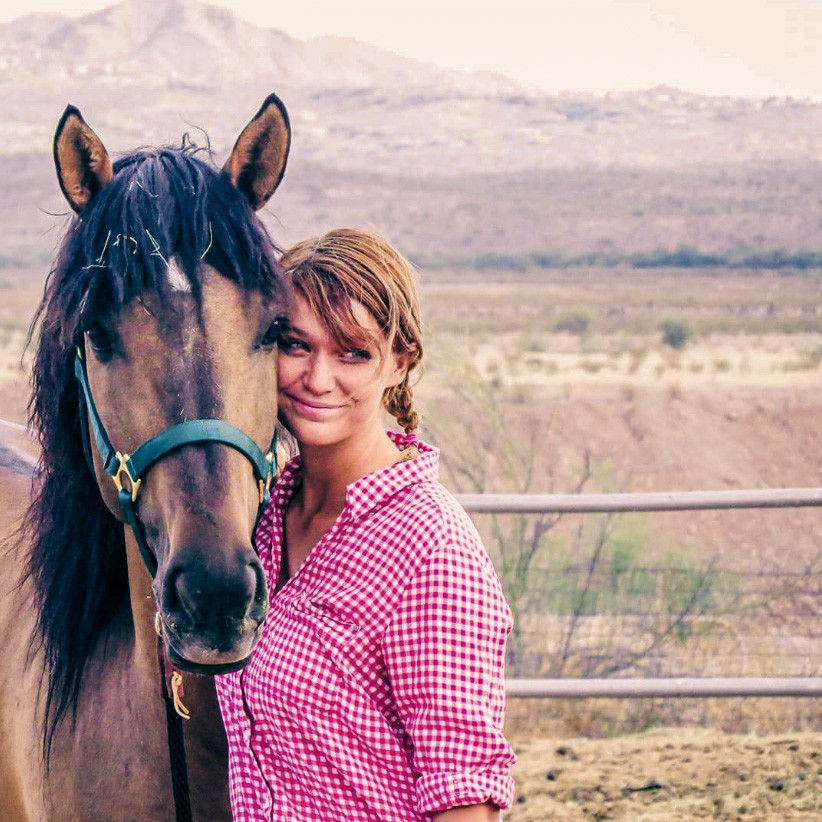
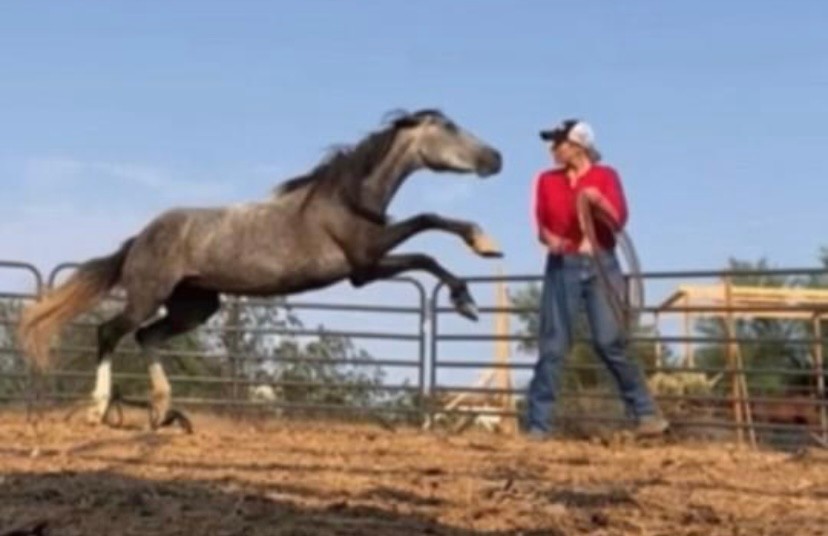
Any thoughts, advice, or strategies you can share for fostering brand loyalty?
One of my core values is to help horses get a second chance and get on a better path in life. In the beginning of my career when I was interning under other professionals, I hated how we would spend so much time with a horse, rehome it, and then never check up on it again. Running my business I never wanted to do that. I have a notebook and inside is a summary of every horse I’ve ever worked with. It’s got contact information for the owners, the horses medical history, and more. Two or three times a year, I go through that notebook, contact these people to see how they are doing. There are only six horses whom I have lost track of, the rest I still receive updates on. I ask live with the mindset that once they are a part of my herd, they are always a part of my herd. There have been instances where an owner falls on hard times and can no longer care for their horse. In these moments, I have offered financial help, veterinary care, taken care of their horse while they get back on their feet, or even help find the horse a new home. This is because I truly care about the horse, and if I am going to strongly advocate to change the industry, I have to practice what I preach.
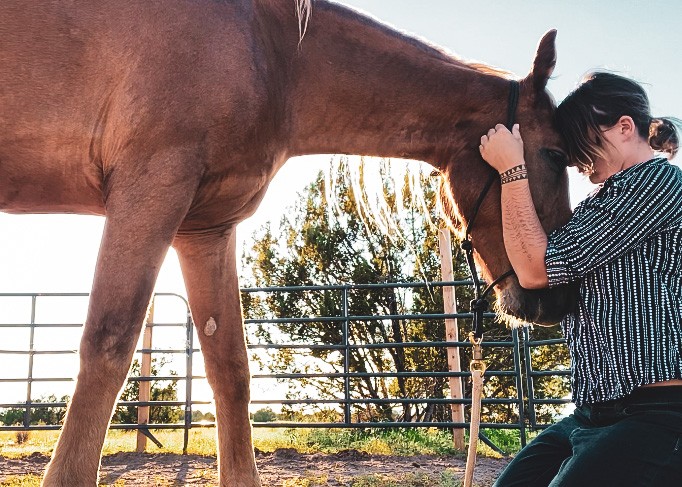
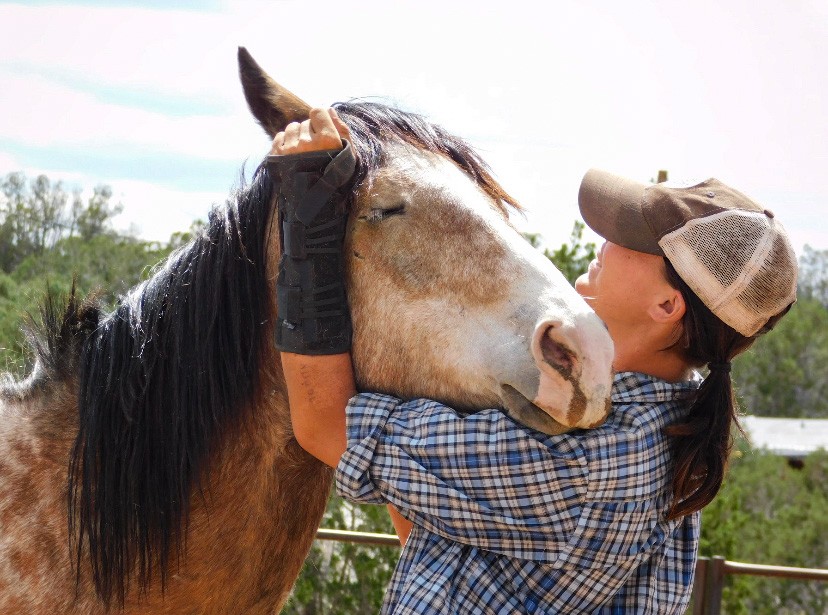
Contact Info:
- Website: https://wildechildofficial.wixsite.com/wilde-child-official
- Instagram: https://www.instagram.com/wildechild_official?igsh=MWJsMGd3cGRnajZlbA%3D%3D&utm_source=qr
- Facebook: https://www.facebook.com/profile.php?id=61550541645479&mibextid=LQQJ4d
- Youtube: YouTube: https://youtube.com/@wildechild8816?si=7orWcwNNkG4fD4PZ
- Other: Podcast: https://open.spotify.com/show/3OhqNFxPFBzWEu7Eh0VQke?si=mEVJ4E5dR7eXEJlSY3QvPQ Merch: https://www.bonfire.com/store/wilde-child-horsemanship/ . Books: Rebelling Against Tradition: https://www.amazon.com/Rebelling-Against-Tradition-Mackenzie-Wilde/dp/166718685X Beneath the Surface: https://www.amazon.com/Beneath-Surface-Memoir-Kenz-Wilde/dp/1794723722 Horse Training Journal: https://www.lulu.com/shop/mackenzie-wilde/horse-training-journal/paperback/product-v6kegn.html Find Your Fight: https://www.lulu.com/shop/mackenzie-wilde/find-your-fight/paperback/product-m2dem9z.html?page=1&pageSize=4


